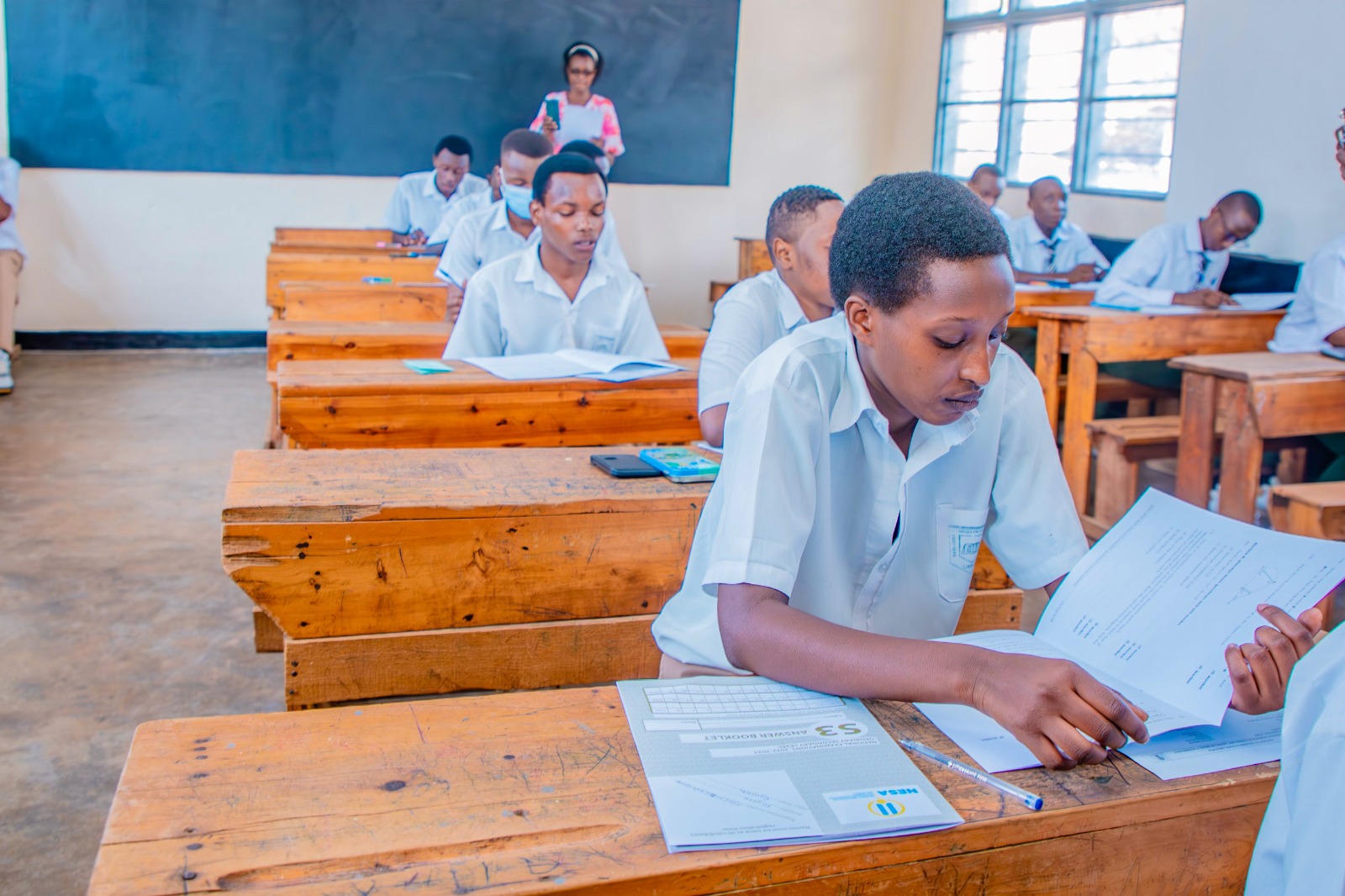The Ministry of Education in Rwanda has ushered in a significant change to the national examinations for Senior Six students, transitioning from the traditional essay-based format to a new multiple-choice system.
This pivotal shift was implemented during the 2024/25 national exams for senior secondary school leavers, which commenced on July 9, 2025. Under this revised system, students are now required to respond by selecting from provided options, utilizing formats such as “Yes” or “No” questions, matching exercises, and choosing the correct response from multiple alternatives, thereby eliminating the need for extensive written explanations.
Minister of Education, Nsengimana Joseph, articulated that this new questioning format, alongside other reforms in exam preparation, is designed to enhance student performance compared to previous years. He elaborated, “We introduced several reforms, including working closely with schools in recent months to implement capacity-building programs to help students prepare thoroughly for these exams.”
The Minister expressed confidence in the new approach, adding, “We also believe that this new exam format will significantly improve students’ success.”
This move aligns with broader efforts within Rwanda’s education sector to evolve assessment methods and potentially reduce the emphasis on rote memorization, moving towards evaluating a wider range of competencies.
Initial feedback from students participating in the exams under the new system has been largely positive regarding efficiency. Some students told RBA that the multiple-choice format is more efficient, allowing them ample time to complete all questions. One student remarked, “This new answering method helps us manage our time well.
The time we used to spend writing is reduced, giving us more time to review our answers and ensure there are no mistakes. I really appreciate these changes.” Another student, after completing a Mathematics exam, highlighted the immediate feedback mechanism: “The Mathematics exam we just completed used the new format where we had to choose the correct answer from options by shading the appropriate circle. Previously, we wrote answers without knowing if they were right, but now we just select the correct one from those given.”
However, the transition has not been without its challenges, as some students expressed surprise and confusion over the new method, indicating a disparity between their expectations and the actual exam format, which differed from prior national assessments. This highlights a potential need for more comprehensive communication and preparation strategies ahead of such significant changes.
The shift to multiple-choice questions (MCQs) in national assessments is a global trend with recognized benefits and drawbacks. On the one hand, MCQs are lauded for their efficiency in scoring, whether manually or electronically, and their capacity to cover a broad range of content areas within a single examination period.
They are also considered to have higher reliability due to objective scoring, reducing inconsistencies often found in subjective grading. This format can be designed to test various levels of cognitive abilities, from basic recall to application and analysis, although some critics argue they primarily test superficial knowledge or literacy skills rather than deep understanding.
Conversely, concerns exist that MCQs can encourage guessing, potentially rewarding unprepared students for correct answers they do not genuinely know. Crafting high-quality multiple-choice questions that effectively assess higher-order thinking skills requires considerable time and expertise.
Furthermore, some studies, such as one by the Massachusetts Institute of Technology (MIT), suggest that over-reliance on recognition-based assessments could potentially lead to decreased memory, lower critical thinking, and reduced originality in student work.
This reform is part of Rwanda’s ongoing commitment to transform its education system. The country has been implementing a competency-based curriculum since 2015, which aims to foster critical thinking and problem-solving skills rather than mere memorization.
Initiatives like the Comprehensive Assessment Management Information System (CA-MIS) are also being introduced to support continuous assessment and provide real-time data on student learning, with the long-term goal of reducing the sole reliance on high-stakes summative exams.
The Ministry of Education and the National Examination and School Inspection Authority (NESA) are continuously working to align assessment methods with these broader educational objectives.
This year, a substantial total of 255,498 students are sitting for the national exams across the country, encompassing those completing both lower and upper secondary levels. The examinations are being conducted from July 9 to July 18, 2025, at 1,595 designated schools nationwide.
This large-scale implementation of the new format underscores Rwanda’s bold step towards modernizing its assessment framework as part of its overarching vision for educational advancement.




